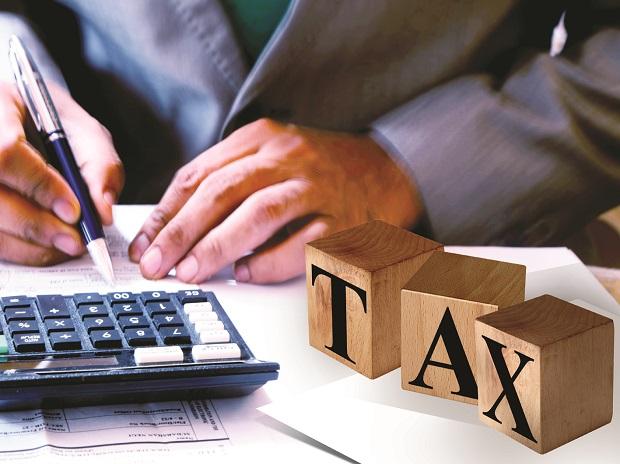WHAT IS DIRECT TAX

Direct Tax
As the name suggests, direct taxes are those that are levied directly on taxpayers — the income-tax, wealth tax, corporation tax, etc. In other words, it is a type of tax where the impact and the incidence fall under the same category.
Direct taxes in India are overseen by the Central Board of Direct Taxes (CBDT). It was formed as a result of Central Board of Revenue Act, 1924.
Some examples of direct tax:
Income tax: Income tax is paid by an individual based on his/her taxable income in a given financial year. Taxable income refers to total income minus applicable deductions and exemptions.
The Budget estimate of the government's income tax revenue for the year 2020-21 was Rs 6,25,000 crore. The revised estimates of income tax for the 2019-20 Budget came at Rs 5,47,000 crore, while the actuals for the 2018-19 Budget stood at Rs 4,61,487 crore.
The Budget estimate of the government's income tax revenue for the year 2020-21 was Rs 6,25,000 crore. The revised estimates of income tax for the 2019-20 Budget came at Rs 5,47,000 crore, while the actuals for the 2018-19 Budget stood at Rs 4,61,487 crore.
Corporation tax: Corporation Tax is the money paid by companies and businesses on the income earned by them in a given financial year.
On September 2019, the central government announced a cut in the rate of corporation tax for domestic companies to 22 per cent from 30 per cent previously. This brought effective corporation tax rate, including all additional levies, to about 25.2 per cent, for companies that do not receive any incentives or exemptions.
The Budget estimate of the government's corporation tax revenue for the year 2020-21 was Rs 6,81,000 crore. The revised estimates of corporation tax for the 2019-20 Budget came at Rs 6,10,500 crore, while the actuals for the 2018-19 Budget stood at Rs 6,63,571 crore.
Read provisions relating to direct taxes
Provisions relating to direct taxes in Budget 2020-2021
The Budget estimate of the government's corporation tax revenue for the year 2020-21 was Rs 6,81,000 crore. The revised estimates of corporation tax for the 2019-20 Budget came at Rs 6,10,500 crore, while the actuals for the 2018-19 Budget stood at Rs 6,63,571 crore.
Read provisions relating to direct taxes
Provisions relating to direct taxes in Budget 2020-2021
RELATED BUDGET TERMS
DIRECT TAX NEWS
-
 Direct tax collection grows 24.58% to Rs 14.71 trillion till Jan 10
Direct tax collection grows 24.58% to Rs 14.71 trillion till Jan 10
The country's gross direct tax collection rose 24.58% to Rs 14.71 trillion till January 10 this fiscal, buoyed by an upsurge in ...| January 11, 2023, Wednesday -
 Tax collections up by 29.66%, to enable govt roll out tax reforms
Tax collections up by 29.66%, to enable govt roll out tax reforms
With such a surge in tax collections, government would look to unleash reforms in the coming 2023-24 fiscal, especially as far as ...| December 30, 2022, Friday -
 Gross direct tax collections up by 30% at Rs 10.93 trn in current fiscal
Gross direct tax collections up by 30% at Rs 10.93 trn in current fiscal
The Central government has set a target of Rs 14,20,000 crore for collection of direct taxes as per budget estimates for 2022-23| December 26, 2022, Monday -
 On track to meet FY23 fiscal deficit target, inflation within RBI band: FM
On track to meet FY23 fiscal deficit target, inflation within RBI band: FM
'We'll bring inflation down further for the sake of common people', said FM Nirmala Sitharaman| December 14, 2022, Wednesday -
 Direct tax mop-up to exceed budget target by 25-30 pc: CBDT chief
Direct tax mop-up to exceed budget target by 25-30 pc: CBDT chief
The direct tax collection in the current fiscal is likely to exceed the budget target of Rs 14.20 lakh crore by about 30 per ...| November 15, 2022, Tuesday -
 Top headlines: FY24 direct tax target, PM visits Bali, COP27 meet, and more
Top headlines: FY24 direct tax target, PM visits Bali, COP27 meet, and more
Business Standard brings you the top headlines this hour| November 14, 2022, Monday -
 Direct Tax collections rise 31% YoY at Rs 10.54 trillion till November 10
Direct Tax collections rise 31% YoY at Rs 10.54 trillion till November 10
Refunds amounting to Rs 1.83 trillion were issued during 1st April, 2022 to 10th November, 2022| November 11, 2022, Friday -
 Centre may introduce changes to capital gains tax rules, says report
Centre may introduce changes to capital gains tax rules, says report
A task force had recommended changes in indexation benefit rules for the capital gains tax in 2019, and it is expected to be the ...| November 10, 2022, Thursday -
 Direct tax mop-up rises 24% YoY to Rs 8.98 trillion in FY23 so far
Direct tax mop-up rises 24% YoY to Rs 8.98 trillion in FY23 so far
Refunds amounting to Rs 1.53 lakh crore have been issued between April 1-october 8, an increase of 81 per cent over the ...| October 09, 2022, Sunday -
 Advance tax mop-up grew 17% between Apr and Sep to Rs 2.95 trillion
Advance tax mop-up grew 17% between Apr and Sep to Rs 2.95 trillion
Net direct tax collections (net of refunds) for the current financial year have grown at 23 per cent to over Rs 7 trillion ...| September 18, 2022, Sunday




